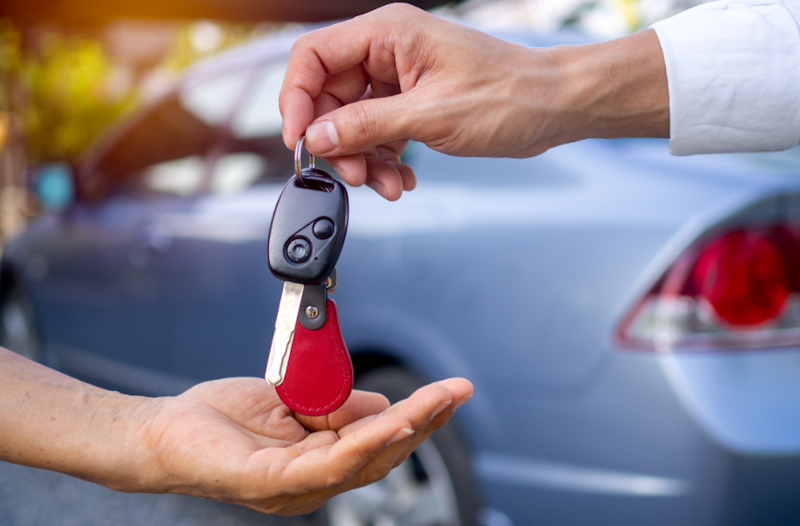If you find yourself in a situation where you need to know how to sell a car of a deceased person, it’s essential to understand the steps involved and the legal requirements. The process of how to sell a car of a deceased person can be intricate and legally sensitive, and navigating it correctly is crucial for the successful sale of the vehicle and ensuring that you remain compliant with Florida state law. Failing to adhere to the proper procedures could lead to potential legal complications, financial liabilities, or disputes down the road, which are scenarios best avoided during an already challenging time.
One of the fundamental aspects to consider when mastering how to sell a car of a deceased person is ownership and estate status. This is the initial point of departure in the process. You must discern whether the deceased individual solely owns the vehicle or if it has joint ownership with another party. This distinction can significantly impact the subsequent steps you need to take.
If the deceased person solely owns the vehicle, the estate’s executor or personal representative typically holds the authority to manage the sale of the vehicle. However, if the car is jointly owned, further inquiries are necessary. Determining the surviving co-owner’s rights and responsibilities regarding the vehicle is essential. The surviving co-owner can often continue using the vehicle without going through probate. Nonetheless, clarifying these matters is crucial to avoid potential conflicts or misunderstandings.
This article will guide you through the process, ensuring a smooth and lawful vehicle sale.
Determine Ownership and Estate Status
Before proceeding with the sale of the deceased person’s car, you must determine the ownership and estate status of the vehicle. In Florida, the process on how to sell a car of a deceased person may vary based on whether the deceased owns the vehicle or is jointly owned by someone else.
Sole Ownership: If the deceased person solely owned the car, the estate’s executor or personal representative should have the authority to sell the vehicle.
Joint Ownership: If the vehicle was jointly owned, you must establish the co-owner and their rights to the car. Typically, the surviving co-owner can continue using the vehicle without going through probate.
Probate Proceedings (If Necessary)
In many cases, primarily when the deceased person’s assets must be distributed among heirs or creditors, probate proceedings may be necessary. This is part of learning how to sell a car of a deceased person. Probate is a legal process that involves validating the deceased person’s will and distributing their assets, if applicable.
If the vehicle is part of the probate estate, the personal representative or executor will have the authority to sell it. This process involves notifying interested parties and obtaining court approval.
Part of mastering how to sell a car of a deceased person is ensuring that any outstanding debts related to the vehicle, such as loans or unpaid fines, are paid off. These debts must be settled to transfer clear ownership to the buyer.
Obtain the Vehicle’s Title
To legally transfer ownership of the car to the new owner, you’ll need the vehicle’s title. If the deceased person’s name is on the title, it must be transferred to the estate or the new owner’s name. If the vehicle is part of the probate estate, the court will typically issue an order allowing the personal representative to transfer the title. Make sure you put this on your list on how to sell a car of a deceased person.
Complete a Bill of Sale
A bill of sale is a crucial document on how to sell a car of a deceased person that records the sale of the vehicle, including the purchase price, date of sale, and the names of both the buyer and seller. While it’s not always legally required, having a bill of sale is a good practice to protect both parties and ensure a smooth transaction.
Transfer the Title to the New Owner
To transfer the title to the new owner, you will need to follow these steps:
Complete the transfer of title section on the back of the title document.
Have the personal representative or executor sign the title on behalf of the estate.
Ensure the new owner completes their title section, including their name and address.
These are also important when you study how to sell a car of a deceased person.
Obtain a Valid Odometer Disclosure Statement
When selling a car in Florida, you must provide an accurate odometer reading and complete an Odometer Disclosure Statement on the title or a separate form. This is essential for protecting the buyer and documenting the car’s history correctly.
Transfer License Plates
If the deceased person’s license plates are still on the vehicle, they should be removed and returned to the local Florida Department of Highway Safety and Motor Vehicles (DHSMV) office. The buyer will need to obtain their license plates.
Notify the Florida DHSMV
Notifying the Florida DHSMV of the sale within 30 days is essential. You can complete a Notice of Sale (Form HSMV 82050) and submit it to the DHSMV. This step ensures that you are not held responsible for any future liabilities related to the vehicle.
Complete the Sale
Once you have followed all the necessary steps and completed the required paperwork, you can finalize the sale of the vehicle. Ensure you and the buyer sign all necessary documents and provide the buyer with a copy of the bill of sale and the title.
Throughout the process, it’s essential to maintain clear records of all transactions and documents related to the sale of the vehicle. This will help you in case of any disputes or legal issues in the future.
Receive payment from the buyer and ensure it’s done through a secure and traceable method, such as a cashier’s check or electronic transfer. Avoid accepting cash for security reasons.
Remove the Vehicle from the Insurance
Notify the insurance company that the vehicle has been sold, and remove it from the deceased person’s insurance policy. This will prevent liability issues and ensure the buyer has proper insurance coverage.
Seek Legal Counsel (if needed)
Suppose you encounter complex legal issues or disputes during the process. In that case, it’s advisable to consult with an attorney experienced in Florida probate and estate law to ensure that you follow all legal requirements correctly. Dealing with the sale of a vehicle owned by a deceased person can be a legal minefield, mainly when intricacies and disputes arise.
Florida’s laws regarding probate, estate administration, and the sale of assets are specific and can be intricate. An attorney with experience in this field is well-versed in the nuances of Florida law, ensuring that you adhere to all the requisite legal requirements. They can provide guidance tailored to your unique circumstances, helping you navigate the complexities and ensuring compliance with local regulations.
Key Takeaways
Selling a car owned by a deceased person in Florida involves several necessary steps and legal considerations. It’s essential to determine ownership, go through the probate process, clear any outstanding debts, and complete the necessary paperwork to transfer ownership to the new owner. By following these steps carefully and seeking legal guidance when needed, you can ensure a smooth and lawful sale while honoring the wishes and obligations of the deceased.
Call Hercules Auto Corp. today if you want to learn more about how to sell a car of a deceased person properly.

